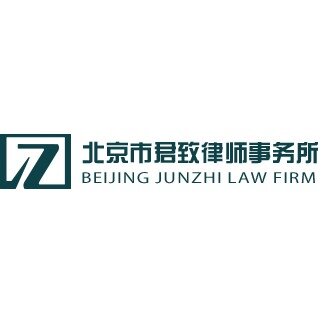Best Acquisition / Leveraged Finance Lawyers in China
Share your needs with us, get contacted by law firms.
Free. Takes 2 min.
Or refine your search by selecting a city:
List of the best lawyers in China
About Acquisition / Leveraged Finance Law in China
Acquisition and leveraged finance refers to the legal and financial frameworks that support the borrowing of funds to acquire companies, often using the assets of the acquired business as collateral. In China, this area has become increasingly significant as the market for mergers, acquisitions, and cross-border transactions grows. The legal environment governing acquisition and leveraged finance is a complex mix of Chinese laws, regulatory guidance, and commercial practice, all of which are designed to ensure that lenders, borrowers, and investors operate within a structured and predictable framework. Successful acquisition or leveraged finance transactions in China require a thorough understanding of legal requirements, regulatory limitations, and contractual obligations to ensure compliance and protect interests.
Why You May Need a Lawyer
Engaging in acquisition or leveraged finance transactions in China can be a complex process involving significant legal and regulatory risks. You may need a lawyer if you are:
- Pursuing an acquisition that requires substantial financing from banks or investors
- Structuring a deal to comply with local laws and cross-border restrictions
- Negotiating with multiple parties including sellers, creditors, and government authorities
- Drafting and reviewing financing agreements to safeguard your interests
- Mitigating risks involving security interests or guarantees
- Resolving disputes or defaults related to acquisition loans
- Navigating regulatory approvals such as from the National Development and Reform Commission for outbound investments
- Adapting to frequent changes in finance and foreign exchange regulations
A specialized lawyer can provide the expertise needed to successfully close transactions, avoid pitfalls, and ensure compliance with evolving Chinese legal and regulatory frameworks.
Local Laws Overview
Key aspects of acquisition and leveraged finance law in China include:
- Regulatory Approval: Certain acquisition finance deals, especially those involving foreign investors or outbound investments, may require approval from agencies such as the State Administration of Foreign Exchange or the China Banking and Insurance Regulatory Commission.
- Loan Structure: Chinese law restricts the ways loans can be secured. For instance, the use of financial assistance is generally prohibited, meaning a target company cannot provide security for loans used to acquire its own shares.
- Foreign Exchange Controls: The transfer and repatriation of funds is strictly regulated. Transactions involving foreign currency may require additional filings or approvals.
- Security Interests: Laws such as the PRC Property Law set out how lenders can take security over assets, register mortgages, and enforce rights in case of default.
- Enforcement: Debt enforcement and insolvency proceedings are governed by specific processes, with onshore and offshore creditors facing different rights and remedies.
- Recent Developments: Regulatory changes can affect capital markets access, bank lending caps, and cross-border investment. Ongoing legal advice is essential to stay current.
Frequently Asked Questions
What is leveraged finance, and how does it relate to acquisitions in China?
Leveraged finance refers to the borrowing of funds particularly through loans or bonds to finance the purchase of another company. In China, this typically involves complex structures due to regulatory and legal limitations on secured lending and financial assistance.
Are leveraged buyouts (LBOs) common in China?
While LBOs are less common in China compared to Western markets, they do occur, especially where private equity firms are involved. Strict regulations can limit traditional leveraged buyout structures.
Can a Chinese company provide security or guarantees for an acquisition loan?
Generally, Chinese law prohibits a company from providing financial assistance for the acquisition of its own shares. Alternative structures may be used, but legal advice is needed to avoid regulatory violations.
What regulatory approvals are required for acquisition finance transactions?
Depending on the transaction and parties involved, approvals may be needed from bodies such as the State Administration of Foreign Exchange, NDRC, or the Ministry of Commerce, particularly for cross-border deals or those involving foreign exchange.
How can foreign investors participate in acquisition finance in China?
Foreign investors may provide financing but must comply with foreign exchange and investment restrictions, as well as obtain necessary regulatory approvals and structure transactions appropriately to protect interests.
What collateral can be used in leveraged finance deals in China?
Common forms of collateral include real property, equipment, receivables, equity interests, and cash. The creation and enforcement of security interests are subject to PRC laws and must generally be registered for validity.
What happens if a borrower defaults on an acquisition loan in China?
In the event of default, lenders may enforce their security interests through judicial or administrative processes, subject to the specific terms of the loan and the type of collateral involved.
Are there limits on how much Chinese banks can lend for acquisitions?
Yes, regulatory caps and ratio requirements often limit the amount and percentage of participation allowed for banks in acquisition-related lending.
How are cross-border leveraged finance transactions typically structured?
Cross-border deals often involve offshore holding companies or special purpose vehicles, with careful structuring to comply with local and international rules on lending, security, and repatriation of funds.
How do I choose a lawyer for acquisition or leveraged finance in China?
Choose a lawyer or law firm with proven experience in acquisition finance, deep knowledge of Chinese regulatory frameworks, and strong connections with local authorities and commercial players.
Additional Resources
If you need more information or support, consider consulting the following resources:
- National Development and Reform Commission (NDRC) - For outbound investment and approval processes
- State Administration of Foreign Exchange (SAFE) - For foreign exchange regulations and cross-border fund flows
- China Banking and Insurance Regulatory Commission - For bank lending rules and guidelines
- China Securities Regulatory Commission (CSRC) - For financing involving public companies
- Major international law firms with China-focused finance practices
- Local Chinese law firms specializing in banking and M&A transactions
- Business associations such as AmCham China and the European Chamber of Commerce
Next Steps
If you require legal assistance in acquisition or leveraged finance in China, consider the following steps:
- Identify and clarify your transaction goals and the parties involved
- Gather all relevant financial, corporate, and regulatory documents
- Consult with professionals such as legal advisors and financial consultants experienced in Chinese acquisition finance
- Engage a lawyer or law firm with specialist expertise in acquisition and leveraged finance under Chinese law
- Work closely with your advisors to structure your deal, carry out due diligence, and secure required approvals
- Stay updated on legal changes that may affect your transaction or financing
By following these steps and seeking expert legal guidance, you can increase the likelihood of a successful and compliant acquisition or leveraged finance transaction in China.
Lawzana helps you find the best lawyers and law firms in China through a curated and pre-screened list of qualified legal professionals. Our platform offers rankings and detailed profiles of attorneys and law firms, allowing you to compare based on practice areas, including Acquisition / Leveraged Finance, experience, and client feedback.
Each profile includes a description of the firm's areas of practice, client reviews, team members and partners, year of establishment, spoken languages, office locations, contact information, social media presence, and any published articles or resources. Most firms on our platform speak English and are experienced in both local and international legal matters.
Get a quote from top-rated law firms in China — quickly, securely, and without unnecessary hassle.
Disclaimer:
The information provided on this page is for general informational purposes only and does not constitute legal advice. While we strive to ensure the accuracy and relevance of the content, legal information may change over time, and interpretations of the law can vary. You should always consult with a qualified legal professional for advice specific to your situation.
We disclaim all liability for actions taken or not taken based on the content of this page. If you believe any information is incorrect or outdated, please contact us, and we will review and update it where appropriate.
Browse acquisition / leveraged finance law firms by city in China
Refine your search by selecting a city.














